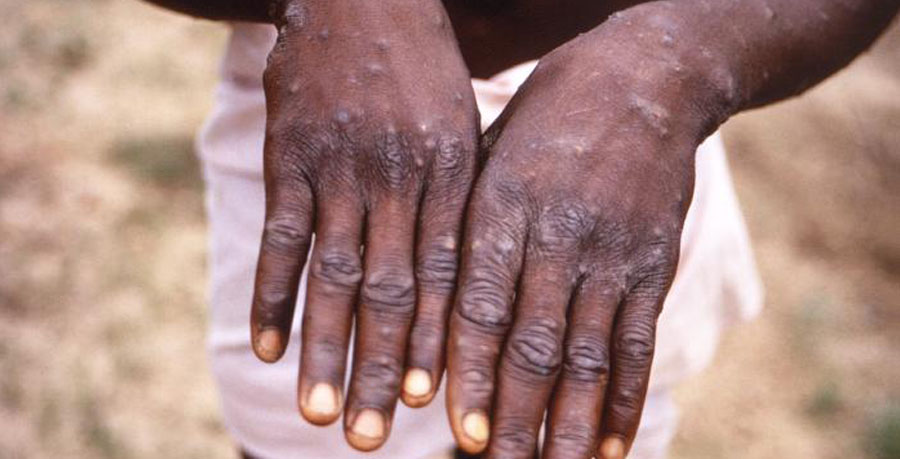There was panic in Jos, Plateau State capital, on Tuesday, following the outbreak of a suspected case of Monkey pox.
Although the details of the case were still sketchy, our correspondent learnt that the fear of the disease became heightened due to the ongoing strike by five industrial unions in the health sector, under the aegis of the Joint Health Sector Unions.
But the Commissioner of Health, Dr. Kamshak Kuden, in an interview with our correspondent, said it was just a suspected case.
He, however, confirmed that the blood sample of the patient suspected to be infected with the monkey pox virus, has been sent to the laboratory in Abuja.
Kuden said, “We just had a suspected case of monkey pox at Bingham University Teaching Hospital, otherwise known as Evangel in the past. We have not yet confirmed it, so we sent the blood sample to Abuja. We are waiting for the result; that is what I will tell you. The patient is responding to treatment, the patient actually stays in Port Harcourt, but he is an indigene of Plateau State from Shendam Local Government Area.
“The patient took ill while in Port Harcourt and came to Shendam. They started managing him in Shendam, but he was referred to Bingham University Teaching Hospital because of the general strike by other health workers. That is the only thing I will tell you.”
The commissioner advised primary and secondary healthcare workers to transfer any suspected case of monkey pox which they cannot manage to tertiary health institutions in the state.
“We have a rapid response team in place and we have alerted our health workers, particularly those at the primary and secondary healthcare that where they see a case that they feel they don’t have the capacity to manage, they should refer that case to any of the tertiary health institutions, either Plateau Specialist Hospital, Bingham University Teaching Hospital or Jos University Teaching Hospital”, he said.
Monkey pox is a rare a viral zoonotic disease that occurs primarily in remote parts of Central and West Africa and its symptoms are very similar to that of small pox.
The illness typically lasts between two and four weeks. In Africa, monkeypox has been shown to cause death in as many as 1 in 10 persons who contract the disease.
The viral disease is not new and has been in West and Central Africa, particularly the Democratic Republic of Congo.
Monkey pox was actually found in laboratory monkeys in 1958, but the first case in humans was detected in 1970.
In humans, the symptoms of monkey pox are similar to but milder than the symptoms of smallpox.
Monkeypox begins with fever, headache, muscle aches, and exhaustion, but the main difference between symptoms of smallpox and monkeypox is that monkeypox causes lymph nodes to swell (lymphadenopathy) while smallpox does not.
The incubation period (time from infection to symptoms) for monkeypox is usually 7−14 days but can range from 5−21 days.
The illness begins with fever, headache, muscle aches, backache, swollen lymph nodes, chills and exhaustion.
Within 1 to 3 days (sometimes longer) after the appearance of fever, the patient develops a rash, often beginning on the face then spreading to other parts of the body.




